Is there life after The Witcher 3 for CD Projekt Red’s card game?

Card games aren’t my thing. I don’t enjoy Hearthstone, and Magic: The Gathering makes me sleepy. Gwent is different—not in function, but in conception. It’s the Trojan Horse of collectible card games, having already infiltrated my consciousness through its presence in The Witcher 3.
Gwent is the perfect minigame for an open-world adventure—an entertaining pastime that encourages you to seek out fellow enthusiasts in order to expand your deck. I played it obsessively.
This standalone incarnation is more complicated, but not over whelmingly so. At its core it’s a best-of-three battle in which players take turns playing a single card. At the end of the round—either when both players pass, or when everyone has run out of cards—the player with the highest attack score wins. Unlike Hearthstone, with its mana pool, your only resource is the number of cards in your hand. When a round ends, your hand isn’t redealt. Play too many cards in the first round, and your opponent will have the advantage over the next two.
At a basic level this is good design. When to pass becomes a crucial decision. Playing high value cards and passing early might tempt your opponent into overextending—giving you a card advantage in later rounds. Or they could accept the loss, leaving you with lower value cards for the rest of the match.
To further complicate matters, cards can have special traits. Each represents a unit, person or spell from the Witcher’s world, and is played on one of three rows—melee, ranged, or siege. Geralt, for instance, is a melee card. He doesn’t do anything fancy, but he’s a legendary— making him immune to most types of damage and debuff. He’s also powerful. Keep him around, and his 12 attack score can tip the balance when both players are low on cards.
Esta historia es de la edición May 2017 de PC Gamer US Edition.
Comience su prueba gratuita de Magzter GOLD de 7 días para acceder a miles de historias premium seleccionadas y a más de 9,000 revistas y periódicos.
Ya eres suscriptor ? Conectar
Esta historia es de la edición May 2017 de PC Gamer US Edition.
Comience su prueba gratuita de Magzter GOLD de 7 días para acceder a miles de historias premium seleccionadas y a más de 9,000 revistas y periódicos.
Ya eres suscriptor? Conectar
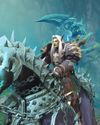
"The War Within itself has kept me coming back most evenings too"
WORLD OF WARCRAFT remains my jailer, and I couldn't be more pleased about it
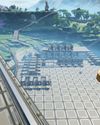
OK BUILDER
SATISFACTORY is the new titan in building and crafting games

HELL YES
DIABLO IV: VESSEL OF HATRED is a transformative expansion
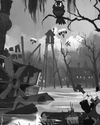
MOUSE: PI FOR HIRE
This mouse wants to be more than just a gimmick

WINDBLOWN
Dead Cells dev's new roguelike has me afraid for my free time

NO MORE ROOM IN HELL 2
As the zombie horde surrounded me just moments after taking down my two remaining teammates, the writing was really on the wall. Armed with just a chef's knife, it was clear I stood no chance, but I was going down swinging, hoping for a miracle... it didn't come.

OWNED BY STEAM
VALVE cordially reminds you that your games aren't yours

CURSE OF THE AZURE BONDS
These classic games haven't aged badly, but I sure have.
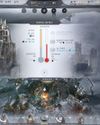
DEEP FREEZE
Endure a blizzard of tough choices and rough consequences in FROSTPUNK 2
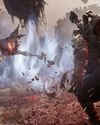
NEW HORIZONS
Building up REMNANT 2 outside the live service game grinder